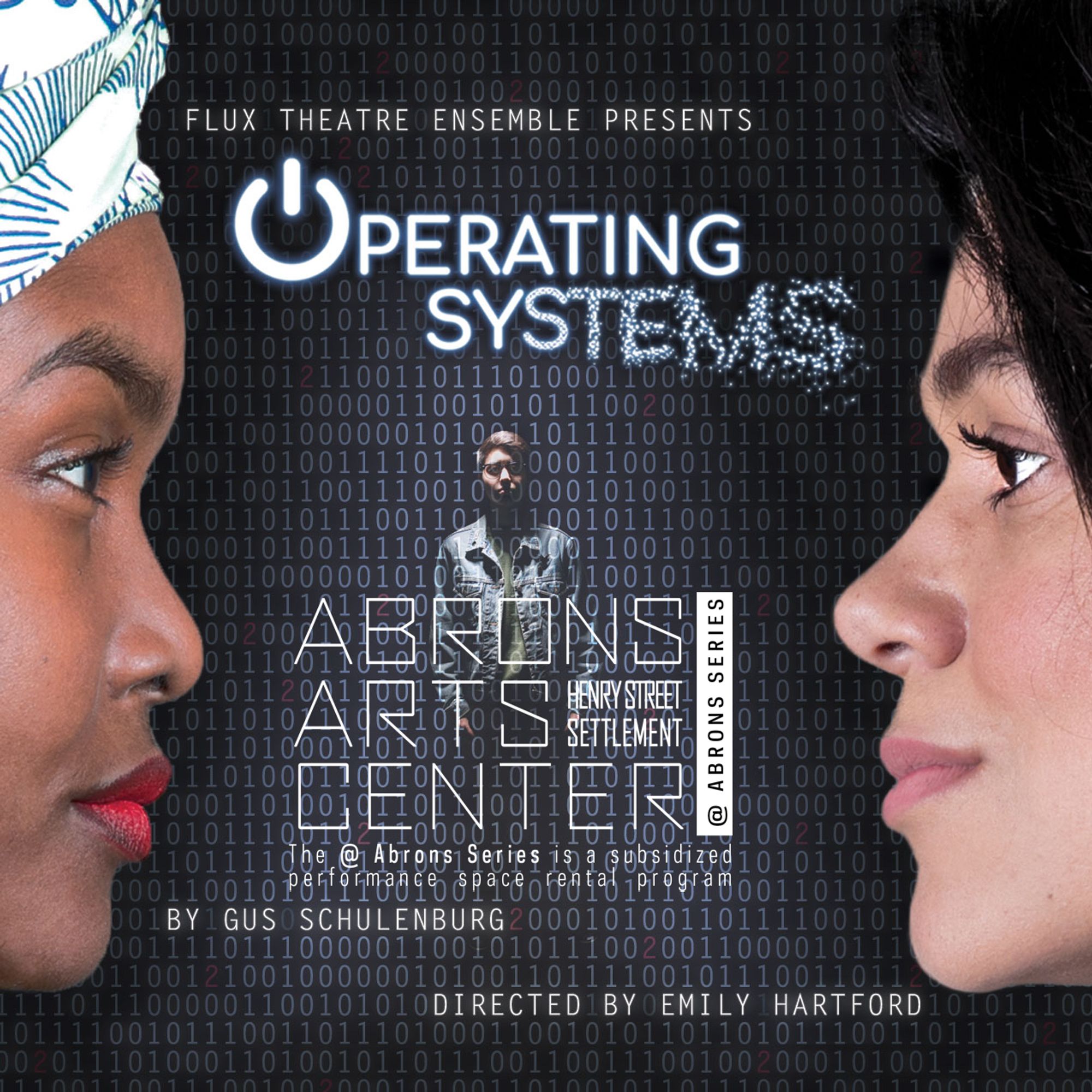[@Abrons Series] Flux Theater Ensemble: Operating Systems
March 2–16, 2019
Operating Systems wrestles with how internalized oppression often makes us reinforce oppressive systems even as we work toward justice.

Flux Theatre Ensemble presents Operating Systems by Gus Schulenburg, directed by Emily Hartford. At Code Breakers, black and brown high school girls learn software engineering. When Benita is promoted to CEO, she enlists the help of a journalist friend to confront a controversy over rejecting a white student. Then Bel, a new Code Breakers employee, accuses the outgoing CEO of sexual misconduct. The fallout threatens the most vulnerable in their community, including Dani, a trans employee and former student. Operating Systems wrestles with how internalized oppression often makes us reinforce oppressive systems even as we work toward justice. In a tokenizing system that often positions oppressed peoples against each other, can the relationships at the heart of the play survive? Is it better to leverage the resources of these systems in service of justice, or to burn the whole thing down?About Living TicketFlux seeks to democratize New York City theatre through our Living Ticket initiative, which aims to simultaneously remove financial barriers to attendance and work toward paying artists a living wage. No financial transaction is required to attend a Flux performance. Instead, audience members reserve a “Living Ticket,” and are encouraged to support Flux in whatever way they can. We make our production budget available through our Open Book program. For example, if every seat was filled by someone giving $24 we'd achieve our current budget. The goals of the Living Ticket program are:
- To remove all financial barriers to attendance at Flux shows
- To ensure our collaborative community is truly representative of the city we love
- To sustain long-term relationships with our community through ticketing and donor systems based on transparency and mutual support
- To provoke an honest, transparent conversation about compensation, living wages and theatre people beyond the false binaries of producer vs artist
- To work in solidarity with other movements advocating for cultural accessibility and ethical compensation
- To assert that the not-for-profit movement exists to create alternative models of communal value, and not merely mimic for-profit structures